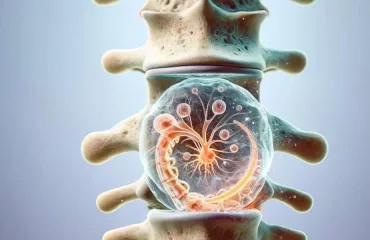

Syringomyelia, a condition characterized by the formation of a fluid-filled cyst within the spinal cord, can manifest with a variety of symptoms. It’s essential to note that the severity and type of symptoms can vary greatly depending on the size and location of the syrinx.
Common Symptoms:
- Pain: Back and neck pain are frequent complaints among individuals with syringomyelia. The pain may be constant or intermittent.
- Weakness: Muscle weakness, particularly in the arms and hands, is a common symptom. This weakness can lead to difficulty with tasks requiring fine motor skills.
- Numbness: Loss of sensation or numbness in the arms, hands, shoulders, or back can occur due to nerve damage caused by the syrinx.
- Stiffness: Joint stiffness, especially in the neck and shoulders, is another common symptom.
- Balance Problems: Difficulty maintaining balance and coordination can arise as the condition progresses.
- Headaches: In some cases, individuals with syringomyelia experience chronic headaches.
Less Common Symptoms:
- Scoliosis: An abnormal curvature of the spine.
- Bowel and Bladder Dysfunction: Issues with bladder control or bowel irregularity may occur.
- Horner’s Syndrome: This condition affects the face and eye, causing symptoms like drooping eyelid, decreased sweating, and pupil constriction.
It’s important to emphasize that not everyone with syringomyelia will experience all of these symptoms. The progression of the condition can also vary widely. If you’re experiencing any of these symptoms, it’s crucial to seek medical attention for proper diagnosis and treatment. Early detection and intervention are key to managing syringomyelia effectively.



